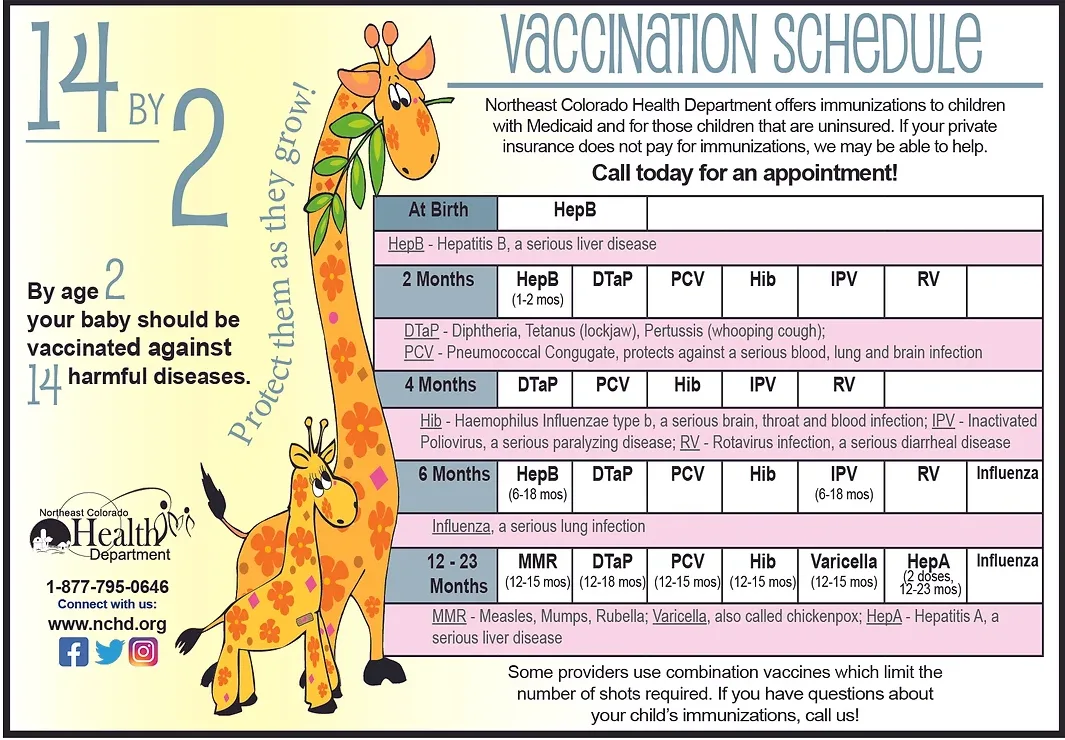Immunizations for children and adults are by appointment
Immunizations and Pregnancy
If you are planning to become pregnant, get off to a healthy start for you and your child by making sure that your immunizations are up to date. You can pass along immunity that will help protect your baby from diseases during the first few months after birth. Vaccines before pregnancy can also help protect you from serious diseases, including rubella, which can cause miscarriages and birth defects.
Read more about how vaccinations can protect you and your child.
Infant and Child Immunizations
14 by 2 – Protect them as they grow!
By age 2, your baby should be vaccinated against 14 harmful diseases. The following is a basic schedule of the vaccines your baby will get from birth through 2 years of age. Some providers may use combination vaccines to reduce the number of shots required.
Birth – HepB
2 months – HepB, Dtap, PCV, HIB, IPV, RV
4 months – DtaP, PCV, HIB, IPV, RV
6 months – HepB, Dtap, PCV, HIB, IPV, RV, Influenza
12-23 months – MMR (12-15 months), Dtap (12-18 months), PCV (12-15 months), HIB (12-15 months), Var (12-15 months), HepA (2 doses 12-23 months)
Abbreviations: HepB- Hepatitis B, Dtap- Diphtheria, Tetanus (lockjaw) and Pertussis (whooping cough), PCV- Pneumococcal, Hib- Haemophilus Influenzae Type B, IPV- Polio, RV- Rotavirus, MMR- Measles, Mumps and Rubella, Var- Varicella (chickenpox), HepA- Hepatitis A
Please visit the CDC vaccine schedule page for children from birth through 6 years old for more details about the diseases and timing of the vaccines listed.
Colorado law requires students attending a public, private or parochial school through college/university to be immunized against certain vaccine-preventable diseases. Please visit this CDPHE Immunization Resources page for more information about school vaccination requirements.
Preteen and Teen Immunizations
Preteens and teens need additional immunizations to help extend protection from childhood vaccines. They also need protection from additional infections, such as meningitis and HPV cancers, before the risk of exposure increases. The following is a basic schedule of the vaccines your child should receive between the ages of 11-18.
Tdap (Tetanus, Diphtheria, Pertussis): 11-12 years of age
HPV (Human papillomavirus): 11-12 years of age
MCV4 (Meningococcal ACWY): 11-12 years of age with a booster at 16
Men B (Meningococcal): 16-18 years of age- talk to your healthcare provider to decide if this vaccine is right for your child
Influenza: annually, ideally by the end of October



